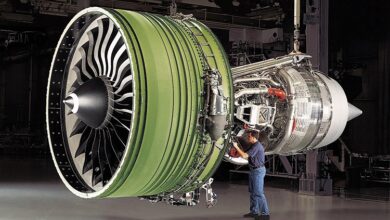Top 13 Azure Databricks Interview Questions for 2024
Azure Databricks has become a pivotal tool for data engineers, data scientists, and analysts to streamline their data processing and analytics workflows. As organizations increasingly adopt cloud-based solutions for their data needs, proficiency in Azure Databricks has become a sought-after skill in the tech industry.
Here are the top 13 Azure Databricks interview questions for 2024, along with detailed answers:
- What is Azure Databricks, and how does it differ from Apache Spark?Azure Databricks is a cloud-based big data analytics platform provided by Microsoft Azure, built on Apache Spark. It offers integrated collaboration, data science, and engineering capabilities. The key difference lies in its managed service model, which simplifies infrastructure management and offers seamless integration with other Azure services.
- Explain the architecture of Azure Databricks.Azure Databricks architecture consists of clusters, which are virtual machines provisioned in the cloud to execute data processing tasks. It includes a Databricks workspace for collaborative development, Databricks runtime for executing jobs, and Azure Data Lake Storage for storing data. Additionally, it leverages Azure security and networking services for data protection and access control.
- How does Azure Databricks ensure security of data?Azure Databricks employs several security measures, including role-based access control (RBAC), Azure Active Directory integration, virtual network peering, and encryption of data at rest and in transit. It also supports compliance standards such as GDPR, HIPAA, and SOC 2.
- What are the key features of Azure Databricks?Azure Databricks offers features like collaborative notebooks for data exploration and visualization, scalable Spark clusters for distributed data processing, integrated machine learning libraries for building predictive models, and automated job scheduling for recurring tasks.
- How does Azure Databricks support machine learning workflows?Azure Databricks provides built-in support for machine learning with libraries like MLlib and Scikit-learn. It also integrates with Azure Machine Learning for model training, deployment, and monitoring. Data scientists can leverage distributed computing power to train models at scale.
- What is Delta Lake, and how does it enhance data reliability in Azure Databricks?Delta Lake is a storage layer built on top of Azure Databricks that provides ACID transactions, schema enforcement, and data versioning capabilities. It ensures data reliability by enabling atomicity, consistency, isolation, and durability for data operations.
- How does Azure Databricks handle streaming data processing?Azure Databricks supports streaming data processing through structured streaming, which allows continuous ingestion and processing of data from various sources like Kafka, Event Hubs, and Azure IoT Hub. It provides fault-tolerant processing and exactly-once semantics for data consistency.
- What are the benefits of using Azure Databricks over an on-premises Spark cluster?Azure Databricks offers several advantages over on-premises Spark clusters, including elastic scalability, managed infrastructure, integrated security and compliance features, and seamless integration with other Azure services. It also reduces the operational overhead of cluster management.
- How can you optimize performance in Azure Databricks?Performance optimization in Azure Databricks involves tuning cluster configurations, optimizing data storage formats, parallelizing data processing tasks, and leveraging caching and broadcast variables. It also entails optimizing queries and leveraging advanced features like Delta Lake and Adaptive Query Execution.
- What is the pricing model for Azure Databricks?Azure Databricks pricing is based on a combination of virtual machines (VMs) provisioned for clusters and usage-based billing for data processing and storage. It offers different pricing tiers based on the desired level of performance and capabilities.
- How can you monitor and troubleshoot jobs in Azure Databricks?Azure Databricks provides built-in monitoring tools like the Spark UI and cluster logs for tracking job performance and debugging issues. It also integrates with Azure Monitor and Azure Log Analytics for centralized monitoring and alerting.
- What are the integration capabilities of Azure Databricks with other Azure services?Azure Databricks integrates seamlessly with other Azure services like Azure Synapse Analytics, Azure Data Factory, Azure SQL Database, Azure Blob Storage, and Azure Cosmos DB. This enables end-to-end data workflows spanning ingestion, processing, analysis, and visualization.
- How does Azure Databricks support collaborative development and DevOps practices?Azure Databricks offers features like version control integration, workspace sharing, and automated deployment through APIs and CI/CD pipelines. It enables teams to collaborate on code, share insights, and automate deployment workflows for increased productivity and agility.
To help candidates prepare effectively, we’ve compiled a list of the top Azure Databricks interview questions for 2024. These questions cover various aspects of Azure Databricks, ranging from its architecture and deployment options to data transformation techniques and billing models. Whether you’re a seasoned Azure Databricks professional or just beginning your journey, mastering these questions will undoubtedly enhance your readiness for interviews and pave the way for success in the dynamic world of big data analytics.
Read also:- https://wingsmypost.com/hot-schedules-login-and-its-benefits-2024/



